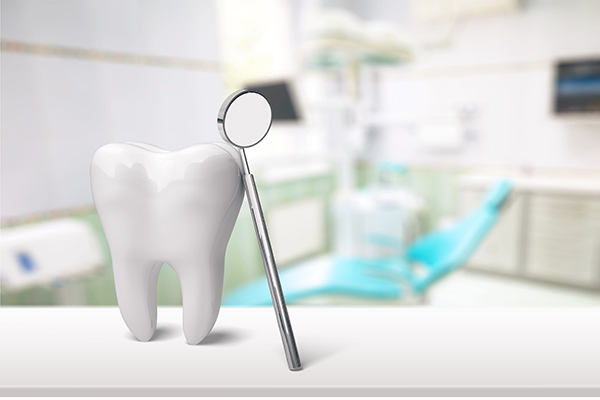Drug abuse and addiction affect millions of Americans every year. Overdose from drugs kills thousands each year, and it is a known fact that drug use causes severe health consequences. The National Institute on Drug Abuse “Drugs, Brains, and Behavior: The Science of Addiction” states:
People with addiction often have one or more associated health issues, which could include lung or heart disease, stroke, cancer, or mental health conditions. Imaging scans, chest X-rays, and blood tests can show the damaging effects of long-term drug use throughout the body. For example, it is now well-known that tobacco smoke can cause many cancers, methamphetamine can cause severe dental problems, known as meth mouth, and that opioids can lead to overdose and death. In addition, some drugs, such as inhalants, may damage or destroy nerve cells, either in the brain or the peripheral nervous system (the nervous system outside the brain and spinal cord). (NIDA)
When it comes to your oral health, how do drug abuse and addiction affect your teeth? 
Drug Abuse and Oral Health in General
Dentures aren’t just for older people these days as more and more people of all ages are losing their teeth. With the opioid epidemic and increase in addiction problems in this country, dental issues have comes. When a person is abusing drugs or in active addiction, they often neglect their oral hygiene.
How Drug Abuse Affect Your Oral Health
Different drugs affect a person’s teeth and gums in different ways. So let’s look at some of the most commonly abused drugs and how they affect your oral health. Methamphetamine – Meth users have noticeable bad teeth. Meth rots the teeth very quickly; this is called “meth mouth”. Meth causes blood vessels to shrink and die which affects the gums. Meth also causes dry mouth, which increases the acidity in the mouth and rots the enamel. Since meth is a stimulant it can increase anxiety which sometimes causes its users to grind their teeth. Meth can also cause people to crave sugary foods and drinks that are bad for the teeth and eventually rot them. Cocaine – Cocaine and in particular crack cocaine will rot your teeth quickly. Cocaine is very acidic. Since cocaine is a stimulant it can also increase anxiety which can cause its users to grind their teeth. Cocaine can also cause buccolingual dyskinesia or mouth-related muscle spasms. Amphetamines – Amphetamines like ecstasy, MDMA, and molly are stimulants that can increase anxiety and causes users to grind their teeth. Amphetamines can also lead to dry mouth, increase the mouth’s acidity, and rot the tooth enamel. Opioids and Opiates – Quite surprising to most, but opioids and opiates can also damage the teeth. A lot of opioids cause sugar cravings which can damage the teeth. Also, even though opioids are not stimulants, they can cause tooth grinding. In addition, those that inject opioids are at risk for oral fungus and viral infections. Another important aspect here is that many times opioid addictions start from dental problems. Dentists often prescribe opioids for pain relief after dental surgery. Alcohol – Alcohol is sugary and acidic which is a double whammy for tooth decay. Alcohol can also cause acid reflux which can lead to enamel rotting. Marijuana – Marijuana causes dry mouth which increases the acidity in the mouth and affects tooth enamel. Marijuana can also lead to mouth cancer. Some marijuana users can also get cannabinoid hyperemesis which is frequent vomiting. Frequent vomiting causes stomach acids to hit the most, which can wear away the tooth enamel and cause decay and cavities. Tobacco – Tobacco is well known to cause periodontal or gum disease. It can also cause dry mouth and lead to oral and throat cancer.
Most Common Ways Drugs Can Damage Teeth
Some prescription and over-the-counter drugs can also lead to problems with your oral health. For example, antihistamines and aspirin may cause damage to some of the structures in the mouth. Antihistamines cause dry mouth, and aspirin can cause tooth decay and damage if a person takes too much. Also, if a person chews the aspirin instead of swallowing it, it can cause damage and decay. Asthma medications can be acidic as well. Immunosuppressant drugs and oral contraceptives can also cause dry mouth and lead to gum issues. Drugs can damage the teeth and gums in different ways. Here are some of the most common ways:
- Dry mouth (increases the acidity of the mouth and rots the tooth enamel)
- Grinding the teeth
- Blood flow loss to the gums and teeth
- Acid reflux (rots the tooth enamel and damages soft tissue or gums)
- Sores or ulcers in the mouth that can become infected
- Nutritional deficiencies from a poor diet
- Taking in more sugary foods and beverages which eventually rots the teeth
Begin Journey To Sobriety at Evoke Wellness
If you or someone you love is struggling with an addiction to drugs, our addiction specialists are available around the clock to assist you. Evoked Wellness assists men, women, and families throughout the United States struggling with substance abuse and searching for addiction treatment. We can help you get on the road to long-lasting recovery. You don’t have to suffer any longer. Call us today.


